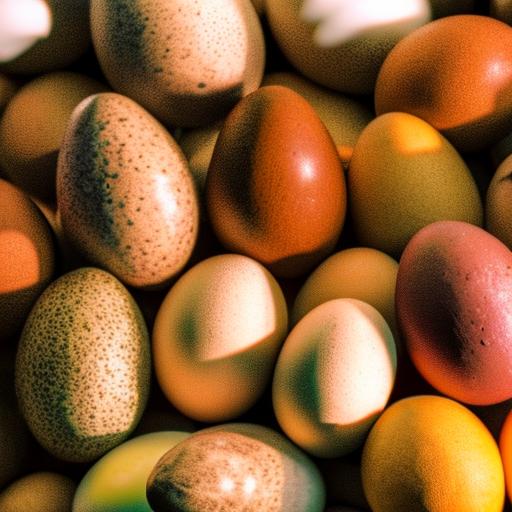Egg-laying chicken breeds are highly sought after by backyard poultry enthusiasts and commercial egg producers alike. These breeds have been selectively bred to maximize egg production, making them valuable assets in various poultry operations. The selection of an appropriate egg-laying breed is crucial for achieving success, whether for personal consumption or commercial purposes.
Egg-laying chicken breeds come in diverse sizes, colors, and temperaments, offering a wide range of options to suit different farming needs. Understanding the specific characteristics and traits of various egg-laying breeds is essential for making an informed decision when choosing the most suitable breed for a particular situation. Proper care and maintenance of egg-laying chicken breeds are vital for ensuring their health and optimizing egg production.
This includes providing appropriate nutrition, housing, and health management practices tailored to the specific needs of the chosen breed. This article will examine several popular egg-laying chicken breeds, detailing their unique characteristics and features. Additionally, it will provide practical advice on raising and maintaining these breeds to achieve optimal egg production levels.
Table of Contents
- 1 Popular Egg Laying Chicken Breeds
- 2 Characteristics and Features of Egg Laying Chicken Breeds
- 3 Tips for Raising Egg Laying Chicken Breeds
- 4 Health and Nutrition for Egg Laying Chicken Breeds
- 5 Egg Production and Quality
- 6 Conclusion and Final Thoughts
- 7 FAQs
- 7.1 What are some common breeds of egg laying chickens?
- 7.2 How can I identify different breeds of egg laying chickens?
- 7.3 What are the differences in egg production among different chicken breeds?
- 7.4 Do different chicken breeds have different egg colors?
- 7.5 What are some factors to consider when choosing a breed of egg laying chicken?
Key Takeaways
- There are many different breeds of chickens that are specifically bred for their egg-laying abilities.
- Some popular egg-laying chicken breeds include the White Leghorn, Rhode Island Red, and Plymouth Rock.
- Egg-laying chicken breeds are known for their high egg production, docile nature, and adaptability to various climates.
- When raising egg-laying chicken breeds, it’s important to provide them with a balanced diet, proper housing, and regular health check-ups.
- Ensuring the health and nutrition of egg-laying chicken breeds is crucial for maximizing egg production and quality.
Popular Egg Laying Chicken Breeds
Top Breeds for Brown Eggs
The Rhode Island Red is one of the most well-known breeds, prized for its ability to lay a large number of brown eggs. This makes it a favorite among backyard farmers and commercial egg producers alike.
White Egg Specialists
Another popular breed is the Leghorn, known for its prolific egg-laying capabilities, producing large quantities of white eggs.
Dual-Purpose and Low-Maintenance Breeds
The Sussex breed is highly regarded for its reliable egg production and friendly disposition, making it a popular choice for those looking for a dual-purpose breed that can provide both eggs and meat. Additionally, the Plymouth Rock breed is valued for its consistent egg-laying abilities and hardy nature, making it a great choice for those looking for a low-maintenance breed that can thrive in various climates.
These are just a few examples of the many egg-laying chicken breeds available, each with its own unique characteristics and features that make them well-suited for different farming needs.
Characteristics and Features of Egg Laying Chicken Breeds

Egg laying chicken breeds come in a variety of sizes, colors, and temperaments, each with its own unique set of characteristics and features. When selecting a breed, it is important to consider factors such as egg color, size, and frequency of production, as well as the bird’s temperament and adaptability to different climates. For example, the Rhode Island Red is known for its excellent egg production, producing large brown eggs consistently throughout the year.
This breed is also valued for its hardiness and adaptability to various climates, making it a popular choice for many farmers. On the other hand, the Leghorn breed is prized for its prolific egg laying abilities, producing large quantities of white eggs and thriving in warmer climates. Additionally, the Sussex breed is known for its friendly disposition and adaptability to free-range environments, making it a great choice for those looking for a breed that is easy to handle and manage.
Understanding the unique characteristics and features of different egg laying chicken breeds is essential for selecting the best breed to fit your specific farming needs.
Tips for Raising Egg Laying Chicken Breeds
Raising egg laying chicken breeds requires careful attention to their housing, nutrition, and overall well-being in order to ensure optimal egg production. When it comes to housing, it is important to provide a clean and secure coop that offers protection from predators and the elements. Additionally, providing ample space for the birds to roam and access to fresh air and sunlight is essential for their overall health and well-being.
Proper nutrition is also crucial for maximizing egg production, so it is important to provide a balanced diet that includes high-quality feed, fresh water, and access to grit and oyster shells for calcium supplementation. Regular health checks and vaccinations are also important for preventing diseases and maintaining the overall health of the flock. Furthermore, providing enrichment activities such as perches, dust baths, and toys can help keep the birds active and content, leading to improved egg production.
By following these tips for raising egg laying chicken breeds, farmers can ensure that their flock remains healthy and productive.
Health and Nutrition for Egg Laying Chicken Breeds
Maintaining the health and nutrition of egg laying chicken breeds is essential for ensuring optimal egg production and overall well-being. Providing a balanced diet that includes high-quality feed with the appropriate levels of protein, vitamins, and minerals is crucial for supporting the birds’ egg laying capabilities. Additionally, access to fresh water at all times is essential for preventing dehydration and maintaining proper hydration levels.
Supplementing their diet with grit and oyster shells is also important for providing the necessary calcium levels needed for strong eggshell formation. Regular health checks by a veterinarian can help identify any potential health issues early on and prevent the spread of diseases within the flock. Vaccinations should also be administered as recommended to protect against common poultry diseases.
Furthermore, maintaining a clean and well-ventilated coop environment can help prevent the spread of parasites and respiratory issues among the flock. By prioritizing the health and nutrition of egg laying chicken breeds, farmers can ensure that their birds remain healthy and productive.
Egg Production and Quality

Optimizing Egg Production
Providing a stress-free environment with access to fresh air, sunlight, and ample space can help promote consistent egg production. Additionally, ensuring that the birds receive a balanced diet with the necessary nutrients can support optimal egg production. Monitoring the birds’ behavior and overall health can also help identify any potential issues that may be impacting their egg-laying capabilities.
Ensuring Egg Quality
When it comes to egg quality, factors such as shell strength, yolk color, and overall cleanliness are important considerations. Providing a clean nesting area with ample bedding material can help ensure that the eggs remain clean and free from contamination.
Maintaining Egg Quality and Freshness
Proper storage of eggs in a cool environment can also help maintain their quality and freshness. By prioritizing both egg production and quality, farmers can ensure that their flock remains productive while providing high-quality eggs.
Conclusion and Final Thoughts
In conclusion, selecting the right egg laying chicken breed is essential for achieving success in poultry farming. Understanding the unique characteristics and features of different breeds can help farmers make informed decisions when selecting the best breed to fit their specific needs. Providing proper care, nutrition, and housing is crucial for maintaining the health and productivity of egg laying chicken breeds.
By following these tips and prioritizing the health and well-being of their flock, farmers can ensure that their birds remain healthy and productive while providing high-quality eggs. Egg production and quality are key factors in determining the success of raising egg laying chicken breeds, so it is important to prioritize both aspects in order to achieve optimal results. Overall, raising egg laying chicken breeds can be a rewarding experience when done with care and attention to detail.
If you’re interested in learning more about the care and housing of chickens, you might want to check out this article on how big a coop needs to be for a chicken. It provides valuable information on creating a comfortable and spacious living environment for your feathered friends.
FAQs
What are some common breeds of egg laying chickens?
Some common breeds of egg laying chickens include the Rhode Island Red, Leghorn, Sussex, Plymouth Rock, and Orpington.
How can I identify different breeds of egg laying chickens?
You can identify different breeds of egg laying chickens by their physical characteristics such as size, color, comb type, and feather patterns. Each breed has its own unique traits that can help you distinguish them from one another.
What are the differences in egg production among different chicken breeds?
Different chicken breeds have varying levels of egg production. For example, Leghorns are known for their high egg production, while Orpingtons are known for laying fewer eggs but of a larger size.
Do different chicken breeds have different egg colors?
Yes, different chicken breeds lay eggs of different colors. For example, Leghorns typically lay white eggs, while Ameraucanas lay blue eggs and Marans lay dark brown eggs.
What are some factors to consider when choosing a breed of egg laying chicken?
When choosing a breed of egg laying chicken, consider factors such as egg production, temperament, size, and climate adaptability. It’s important to choose a breed that fits your specific needs and environment.
Meet Walter, the feathered-friend fanatic of Florida! Nestled in the sunshine state, Walter struts through life with his feathered companions, clucking his way to happiness. With a coop that’s fancier than a five-star hotel, he’s the Don Juan of the chicken world. When he’s not teaching his hens to do the cha-cha, you’ll find him in a heated debate with his prized rooster, Sir Clucks-a-Lot. Walter’s poultry passion is no yolk; he’s the sunny-side-up guy you never knew you needed in your flock of friends!







